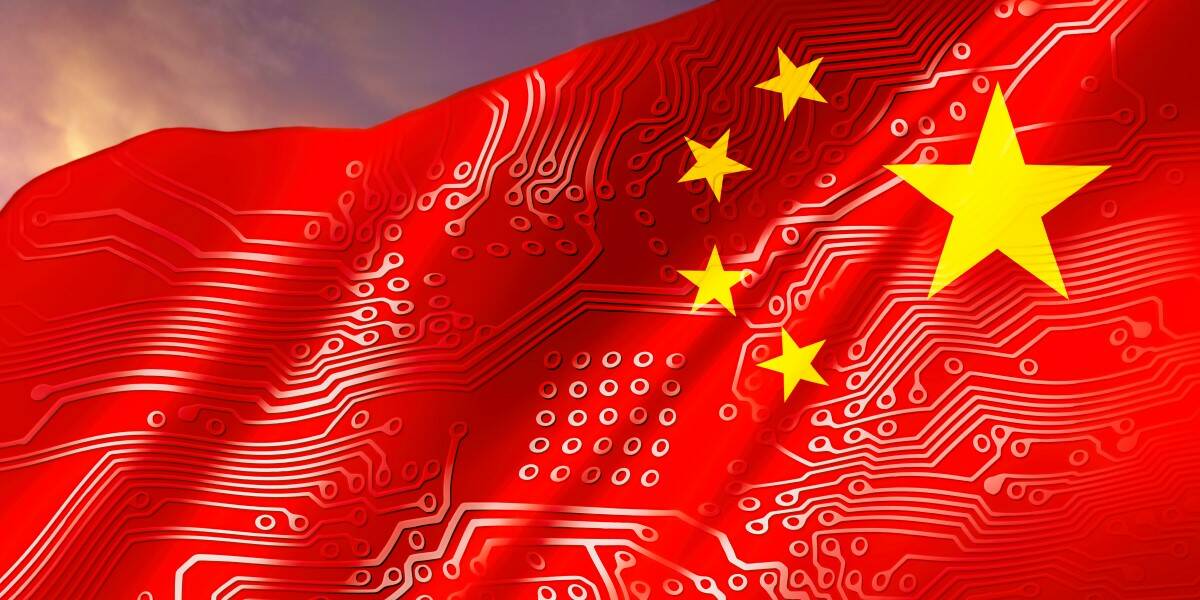The Chips Are Down In China As Imports See Largest Ever Drop

China's imports of semiconductors and integrated circuits were hit by their largest ever drop last year, although chips are said to remain the country's biggest import item.
Semiconductor imports by China reached a total value of $349.4 billion, according to customs data reported by Beijing. These figures are down by 15.4 percent and also down 10.8 percent in volume from those reported for 2022, when they were also down for the first time since 2004.
China is the largest global importer of semiconductors because it is home to a large proportion of the world's electronics manufacturing and has a large domestic market for such goods.
The sharp fall reflects the weakness in demand for semiconductors during 2023 because of high interest rates in western countries, but it is also being blamed on a tepid post-pandemic recovery in China itself.
The latest figures from Gartner indicate that worldwide semiconductor revenue during 2023 declined by 11.1 percent from the previous year to $533 billion.
Memory was the worst hit sector of semiconductor manufacturing last year, with revenue showing a decline of 37 percent. According to Gartner, DRAM revenue declined 38.5 percent to $48.4 billion and NAND flash revenue shrank 37.5 percent to $36.2 billion.
This was particularly so for the first half of the year, with three of the largest memory segments – smartphones, PCs, and servers – showing weaker than expected demand and being hit by excess channel inventory.
Non-memory semiconductors fared better, with revenue declining 3 percent during the year, but most non-memory vendors experienced "a relatively benign pricing environment" compared with that for memory chips.
- Teardown finds Huawei's 5nm notebook processor was made in Taiwan, not China
- Semiconductor scene set for AI-led recovery in 2024, and China will be in front
- China bans export of rare earth processing kit
- China's Loongson debuts processor that 'matches Intel silicon circa 2020'
Possibly due to the lackluster performance of memory vendors, Intel regained top spot in terms of semiconductor maker revenue with $48.664 billion, pushing Samsung into second place. The major mover was Nvidia, however, which saw its revenue increase by 56.4 percent to $23.983 billion thanks to AI driving strong demand for GPUs. It jumped from 12th position to fifth thanks to this.
Also likely playing a part in China's import decline is the US decision to restrict exports of advanced semiconductors to the country, supposedly in a bid to stop Beijing's military getting hold of advanced compute needed to develop and train AI models.
According to the Financial Times, China's chipmakers have been courting their Japanese counterparts to help them adapt to the sanctions imposed by Washington.
Semiconductor companies from China have been sending representatives on group tours to network with their Japanese peers, giving them access to chip companies and semiconductor trade fairs in the country, including Semicon Japan and Nepcon Japan.
The chipmakers hope to deepen existing relationships with Japanese material and tool suppliers, the FT reports, or discover new suppliers for key equipment in the light of the updated restrictions.
Naturally, the Japanese are said to have some concerns that Chinese companies may be trying to learn secrets from the Japanese companies they visit and reverse engineer their advanced technology. ®
From Chip War To Cloud War: The Next Frontier In Global Tech Competition
The global chip war, characterized by intense competition among nations and corporations for supremacy in semiconductor ... Read more
The High Stakes Of Tech Regulation: Security Risks And Market Dynamics
The influence of tech giants in the global economy continues to grow, raising crucial questions about how to balance sec... Read more
The Tyranny Of Instagram Interiors: Why It's Time To Break Free From Algorithm-Driven Aesthetics
Instagram has become a dominant force in shaping interior design trends, offering a seemingly endless stream of inspirat... Read more
The Data Crunch In AI: Strategies For Sustainability
Exploring solutions to the imminent exhaustion of internet data for AI training.As the artificial intelligence (AI) indu... Read more
Google Abandons Four-Year Effort To Remove Cookies From Chrome Browser
After four years of dedicated effort, Google has decided to abandon its plan to remove third-party cookies from its Chro... Read more
LinkedIn Embraces AI And Gamification To Drive User Engagement And Revenue
In an effort to tackle slowing revenue growth and enhance user engagement, LinkedIn is turning to artificial intelligenc... Read more

